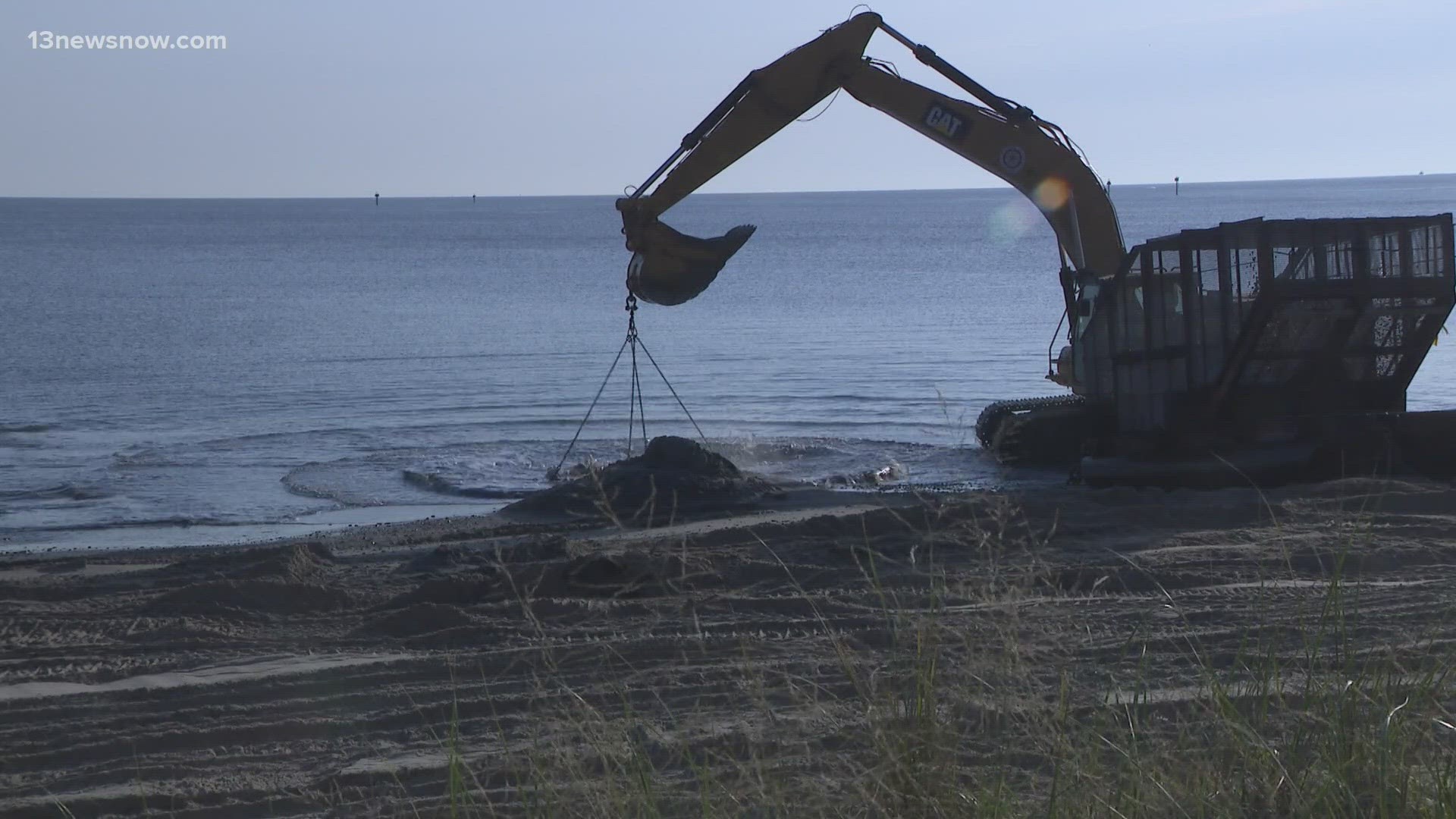VIRGINIA BEACH, Va. — At times, building back our beaches can seem like a losing battle. As one beach replenishment project wraps up, another one in a different area is needed.
There have been recent sand replenishments in Hampton and Cape Charles, and they're also needed every five years in areas like Avon and Buxton on the Outer Banks.
In Rodanthe, however, 13News Now has reported on problems getting funding approved for beach replenishment.
The high erosion rate in the Outer Banks town is pushing the cost of a potential project to $30 million.
Beach erosion is a chronic issue in our region, costing the state and localities tens of millions of dollars on these critical projects. But new research could help us adapt to the changes, rather than throw a bandage on the problem caused by sea-level rise.
A San Diego Union-Tribune recently interviewed a renowned oceanographer in California, who uncovered new evidence that sand doesn’t always flow south in a particular part of San Diego. That challenges a notion has shaped efforts to rebuild the region's beaches for years.
Now, design teams for these beach replenishment projects will account for new evidence that suggests the sand movement is more complex and contextual than a simple north-to-south flow.
The changes could create more efficient replenishment projects that will hopefully cost tax-payers less.
Even better: the teams have been tasked with depicting how their designs can be adapted to different situations in different regions.
While beach erosion projects could be a thing of the past decades from now... the effort to sustain our beaches and reduce the cost of doing so in the immediate future is certainly alive today.

